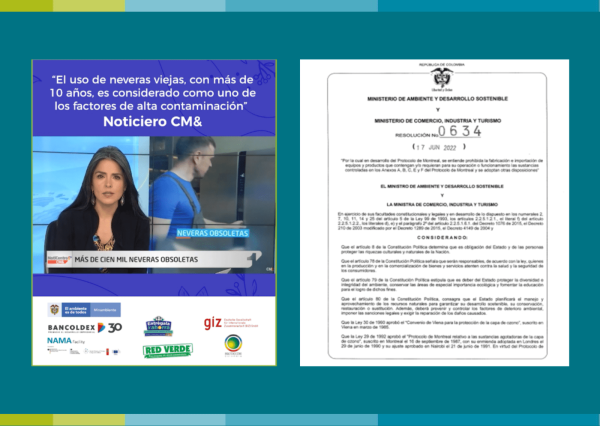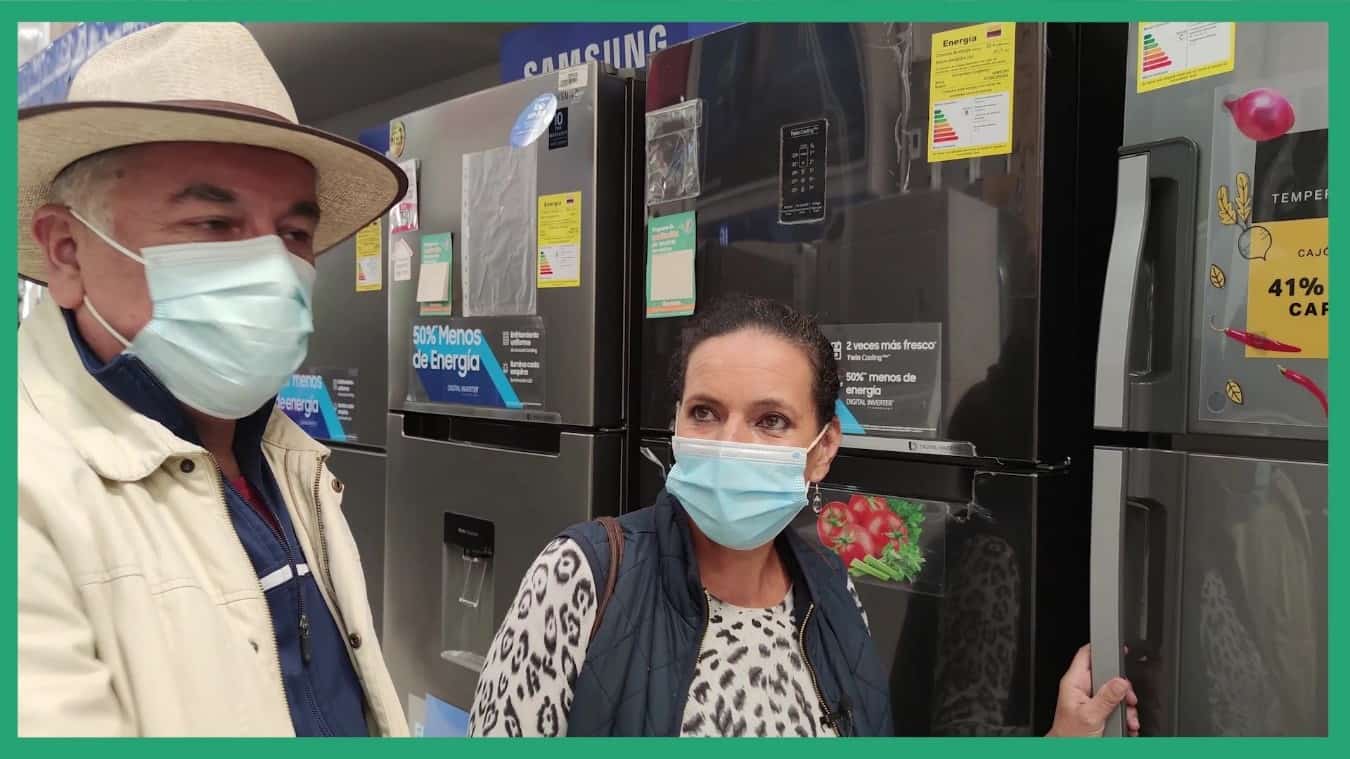Colombia Domestic Refrigeration NAMA Support Project (NSP) contributes to landmark ban of harmful hydrofluorocarbons (HFCs)

On 17 June 2022 the Ministry of Environment and Sustainable Development together with the Ministry of Trade, Industry and Tourism issued a resolution banning ozone-depleting hydrofluorocarbons (HFCs) frequently used in refrigerants. HFCs are also among the major heat-trapping greenhouse gases (GHGs) responsible for global climate change.
Colombia’s Resolution 0634 states that “the manufacturing and import of equipment and products containing and/or requiring of controlled substances in Annexes A, B, C, E and F of the Montreal Protocol for their operation and other provisions are prohibited”. In 1987, the Montreal Protocol, an international treaty and the only United Nations (UN) agreement to be ratified by all countries, led to the phase out of substances contributing to ozone layer depletion.
Colombia has established itself as a pioneer country in Latin America with a gradual approach of reducing HFCs in its refrigeration equipment. This new regulation prohibits the production and import of refrigerators containing this substance and has undoubtedly resulted from government cooperation within the NAMA Facility funded NAMA Support Project (NSP), Colombia Domestic Refrigeration that has had positive impacts on local industry, making such appliances more environmentally friendly.
The Colombia Domestic Refrigeration NSP, selected in the NAMA Facility’s 3rd Call for Projects, has a total funding volume of EUR 9 million. Overall the project aims to address support the following measures: a) a ban of hydrofluorocarbons (HFCs), b) the application of Minimum Efficiency Performance Standards (MEPS) in the domestic refrigeration sector, c) production line conversions using hydrocarbon refrigerants instead of HFC and changed product design to improve energy efficiency, d) training of engineers and technicians in the proper handling of R600a natural refrigerants, e) an innovative replacement program including a sustainable on-bill financing mechanism with incentives for low-income households when old-inefficient appliances are returned and f) implementation of a sustainable extended producer responsibility scheme by which producers and importers are given end-of-life responsibility for domestic refrigerators, g) the strengthening of WEEE waste management companies that perform safe and adequate management in accordance with the current environmental regulations for discarded refrigerators, particularly in the development of knowledge and training to optimize disassembly, Contributes to the proper management of waste generated, especially as regards HFCs containing, h) the reduction of 2.2 MtCO2eq in 2030 as a contribution to the NDC – Nationally Determined Contributions.

The project’s efforts to curb the use of natural refrigerants contribute to reduced energy consumption, protection of consumer health and safety and prevention of environmental deterioration and further climate warming.
Learn more about the Colombia Domestic Refrigeration project on its official website (available in Spanish).
The NAMA Facility is a joint initiative of the German Federal Ministry for Economic Affairs and Climate Action (BMWK), UK’s Department for Business, Energy and Industrial Strategy (BEIS), the Danish Ministry of Climate, Energy and Utilities (KEFM), the Danish Ministry of Foreign Affairs (MFA), the European Union and the Children’s Investment Fund Foundation (CIFF).
